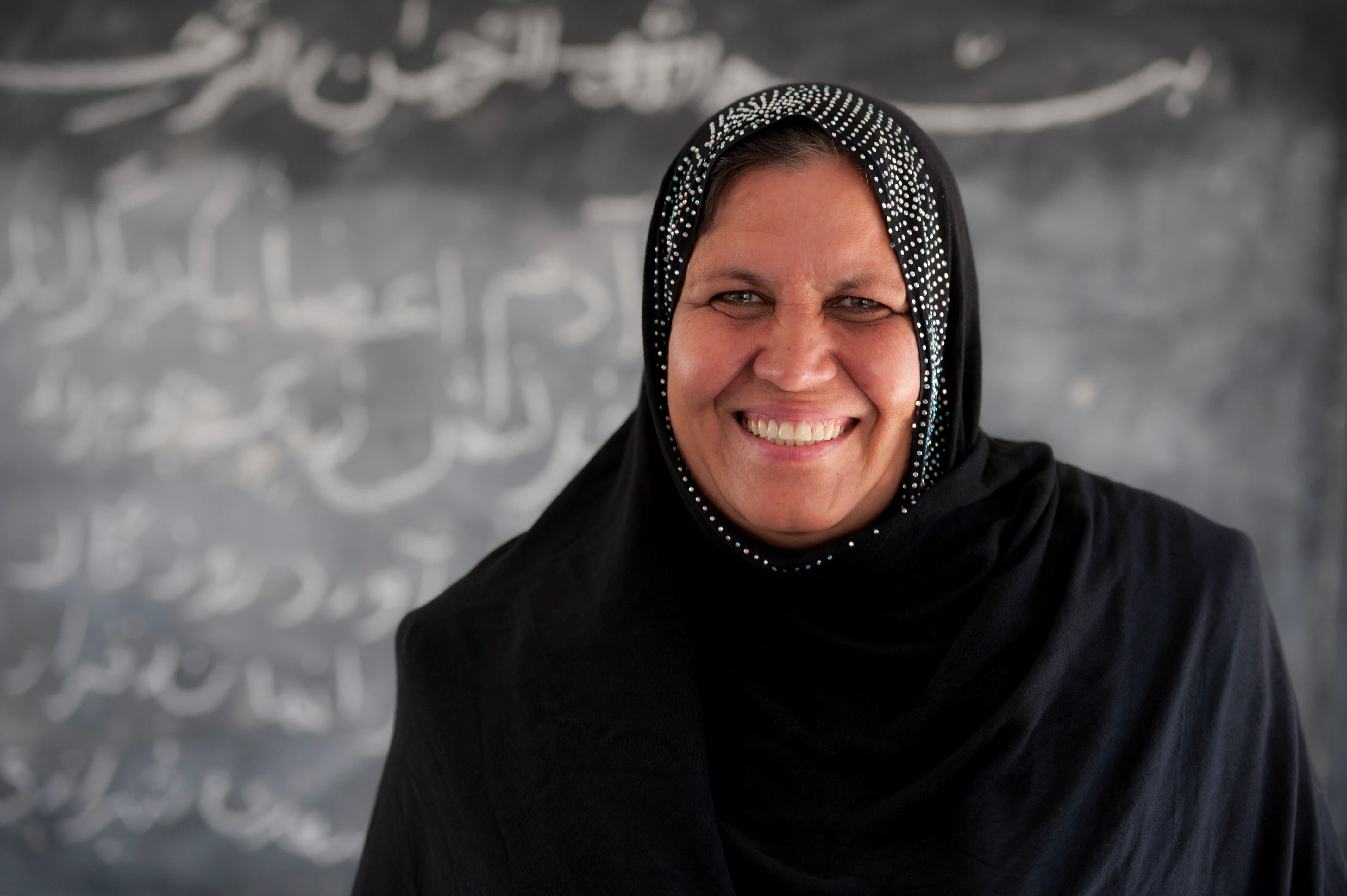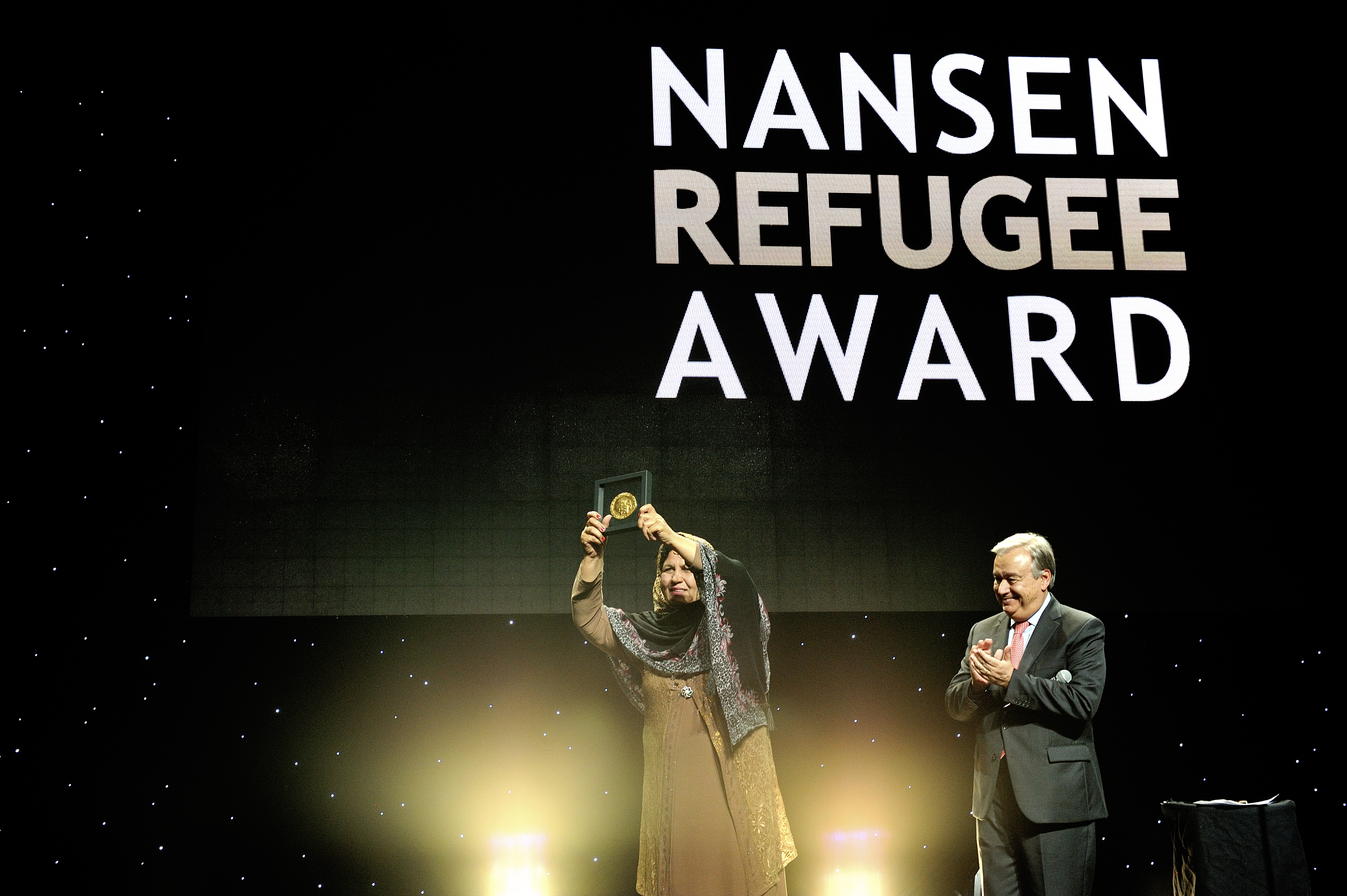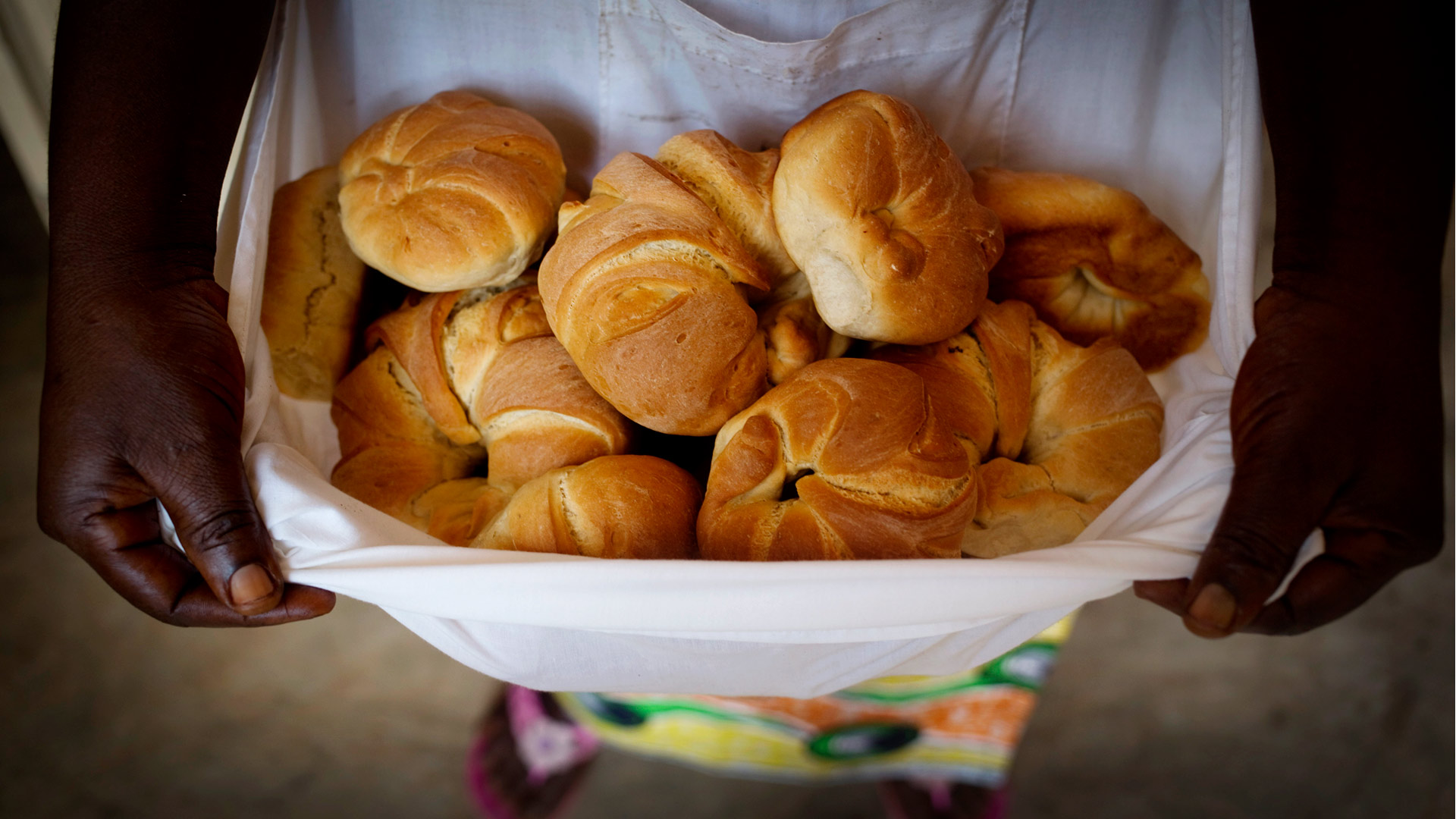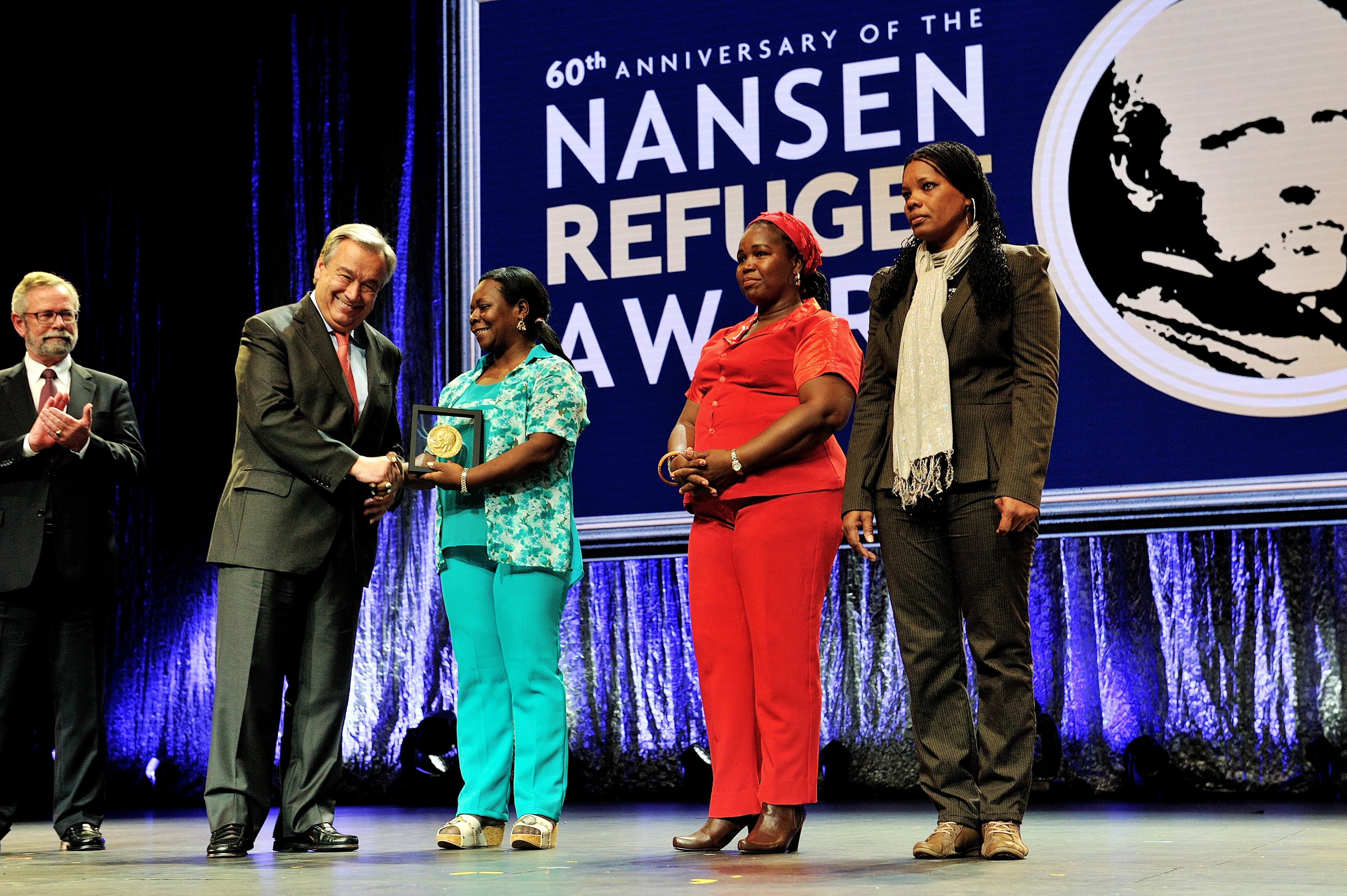2008 Nansen Refugee Award to Mine Action Programme in southern Lebanon
2008 Nansen Refugee Award to Mine Action Programme in southern Lebanon
Monday, 15 Sept. 2008
BEIRUT - The British head of the UN Mine Action Programme in southern Lebanon and his 990-member team of mine clearers will receive the 2008 Nansen Refugee Award for their courageous work in removing tonnes of deadly munitions that had prevented the safe return of hundreds of thousands of displaced people.
U.N. High Commissioner for Refugees António Guterres announced that the annual prize will go to Christopher Clark, the British coordinator of the UN-funded programme and his international and Lebanese staff of nearly 1,000 civilian mine clearers.
"Chris Clark and his Lebanese and international staff in the UN Mine Action Programme in southern Lebanon have worked courageously to clear southern Lebanon of the remnants of war and cluster bombs," Guterres said. "Through their painstaking work and devotion, the teams created the conditions for a safe and dignified return home for almost one million displaced Lebanese."
In 2006, over a period of five weeks, between 2.6 and 4 million Israeli cluster bombs were scattered in southern Lebanon. More than 750,000 Lebanese fled the south and lived as internally displaced people in northern Lebanon, while another 250,000 people fled to Syria or further afield.
The UN Mine Action Programme was crucial in providing support to humanitarian operations in South Lebanon during the conflict and in the initial stages of the ceasefire, as well as in ongoing clearance operations. Because of their work, hundreds of thousands of refugees and internally displaced were able to go home safely.
The Nansen Refugee Award is given annually to an individual or organisation for outstanding work on behalf of refugees. It includes a $100,000 prize that the winner can donate to a cause of his or her choice. The Nansen Selection Committee said that it had chosen Chris Clark and the team for their outstanding contribution to the safety and security of internally displaced people and returnees in Lebanon, as well as humanitarian workers.
The Mine Action Programme is directly responsible for the management and co-ordination of both the landmine clearance operation, following the Israeli withdrawal in May 2000, and the cluster bomb clearance operation, following the July-August 2006 war.
Clark has spent half his life working in dangerous environments, including in the British military. In the late 90s, he became programme manager for the UN's mine action programmes in Sudan and Kosovo. In 2003, he joined the UN Mine Action Coordination Centre-South Lebanon.
His team of Lebanese and international mine clearers have detected and destroyed large quantities of unexploded ordnance (UXO) and tens of thousands of mines. After the five-week war in southern Lebanon in 2006, they concentrated on clearing villages and agricultural lands of lethal bomblets scattered by cluster bombs. They cleared some 149,000 of the devices and worked closely with local communities on confidence-building measures which helped pave the way for the return home of up to 1 million displaced Lebanese.
Without the professional and swift response of the UN Mine Action Programme in 2006, it would have been extremely difficult to put the humanitarian relief effort in place in southern Lebanon, posing an even bigger threat to humanitarian staff and civilians from unexploded cluster bomblets and other UXOs. Mine safety briefings and updated road maps were provided daily to UN and relief agency personnel. Humanitarian convoys were accompanied by team members and mine clearers provided at short notice to clear infected areas and assist with casualty recovery when necessary.
Since the 2006 conflict, there have been 39 de-mining injuries and 14 de-mining fatalities among the group. Additionally, 195 civilians have been injured as a result of cluster munitions or other unexploded devices, and 20 civilians have been killed.
The efforts by the winning team represent the importance of the new treaty to ban cluster bombs which was approved by more than 100 countries at the Dublin Conference in May 2008, a process to which Chris Clark and colleagues actively contributed.
The Nansen Award Ceremony will take place on 6 October 2008 at 18:00 at the UN Palais in Geneva, on the first day of UNHCR's Executive Committee meetings.






